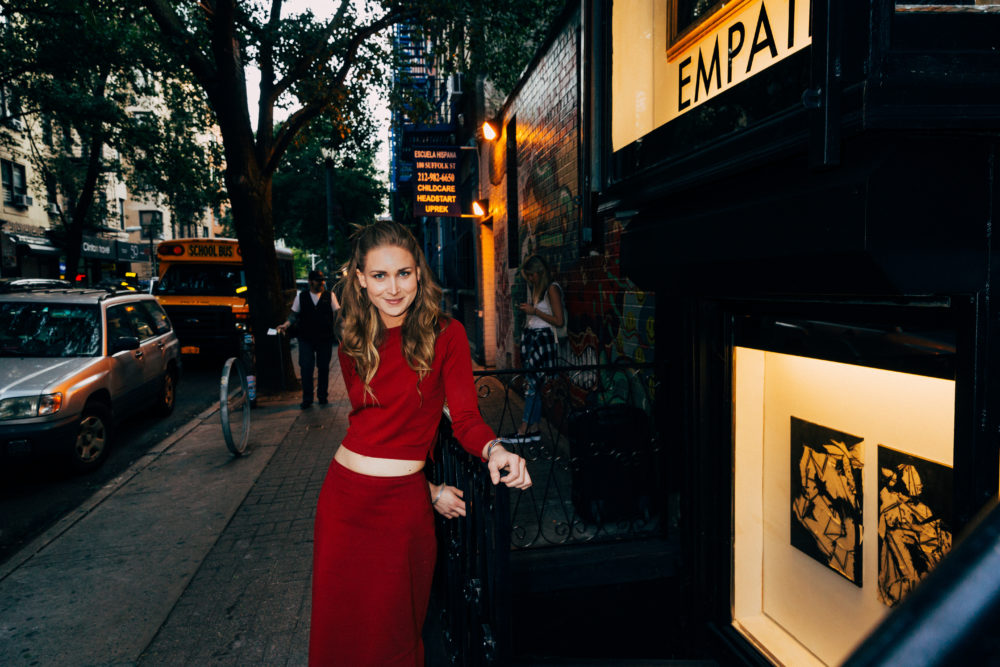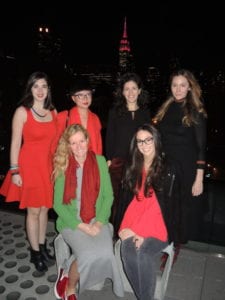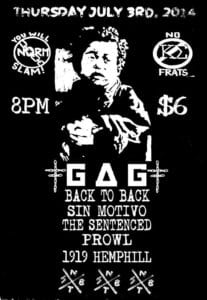If Jean-Michel Basquiat had not died of an overdose in 1988 at age 27, he would be 58 years old today – about the same age as Andy Warhol when the two collaborated on a series of paintings in the 1980s. Would the pair be surprised that two major institutions are highlighting their individual works as well as their collaboration? Probably not. Would they be surprised that one of the institutions, the newly opened Brant Foundation Art Study Center is located a few blocks from Basquait’s old studio in the East Village? Probably. In the 1980s, the East Village and neighboring Alphabet City were graffiti-covered, low-rent neighborhoods where would-be-anarchist squatters and drug addicts lived in abandoned buildings. Would the two be even more surprised that one of Basquiat’s paintings sold for 110.5 million dollars to a Japanese billionaire- the highest price ever paid for a post-1980 work of art? Definitely. Would it have made Andy happy that this price edged out the sale of his painting Silver Car Crash (Double Disaster) which sold for 104.5 million in 2013? Definitely not!
The two first met when Basquiat was introduced to Warhol while the latter was eating dinner in 1982. At first, Warhol was not impressed. Warhol was quoted saying, “He’s just one of those kids who drives me crazy.” Warhol eventually warmed up to Basquiat, and at the suggestion of art dealer Bruno Bishofberger. Warhol, Basquiat and Italian artist Francesco Clemente started a round robin of painting. Each would start a canvas, and then it would be passed onto the others until all had participated in the final product. Warhol and Basquiat quickly began collaborating secretly together leaving Clemente out of the collaboration. The two collaborated on and off until Warhol’s death in 1987. Basquiat died a year later.
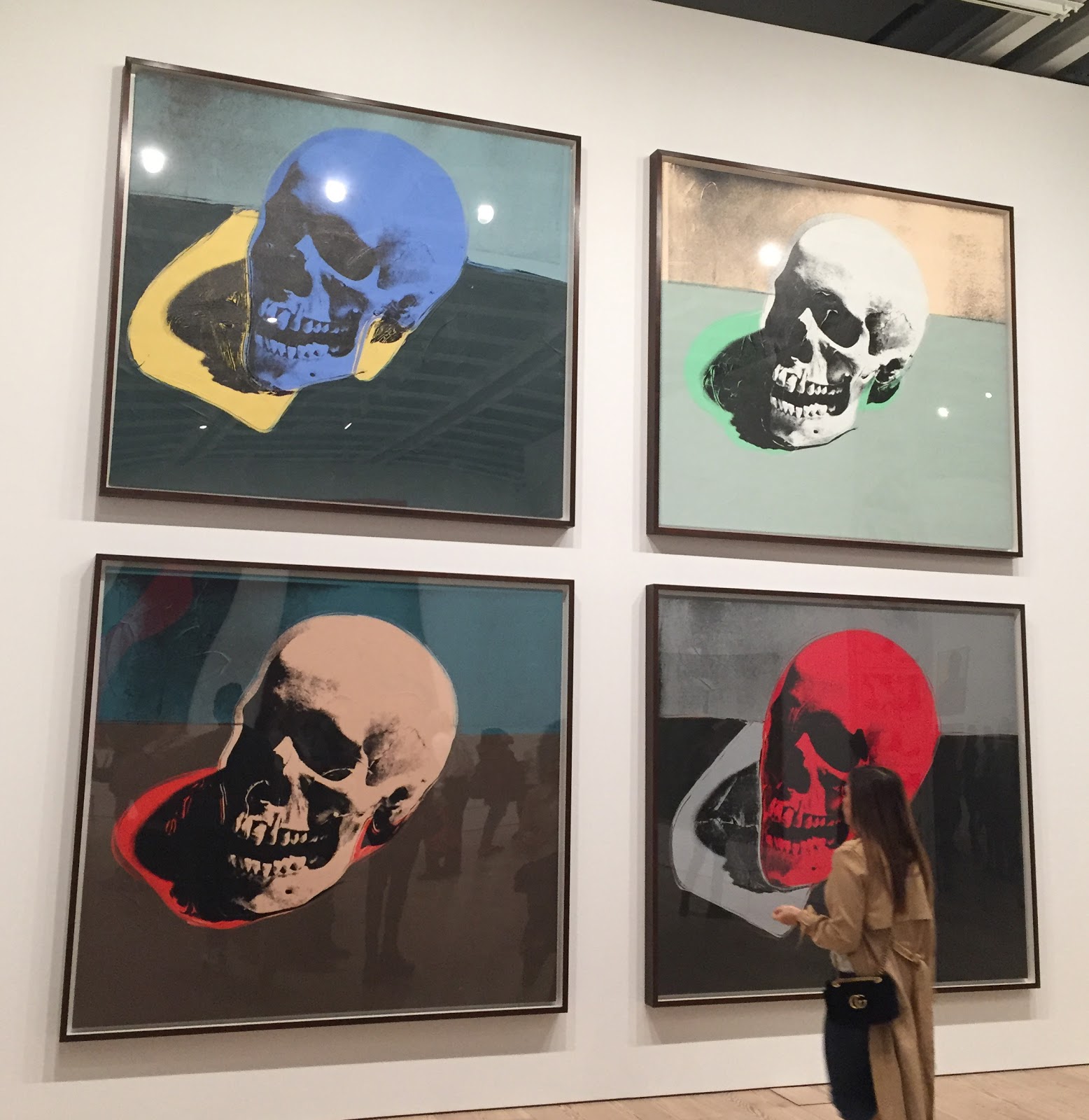
New Yorkers had a brief opportunity to experience the collaboration at the Warhol retrospective at the Whitney and see a large selection of Basquiat’s paintings at the inaugural exhibition of the Brant Foundation. The shows ran concurrently for a few weeks in late March. The Warhol retrospective Andy Warhol A to B and Back Again featured two paintings of the Warhol-Basquiat collaboration while the Brant Foundation show features a portrait of Warhol and Basquiat that Basquiat painted after their first meeting at the restaurant.
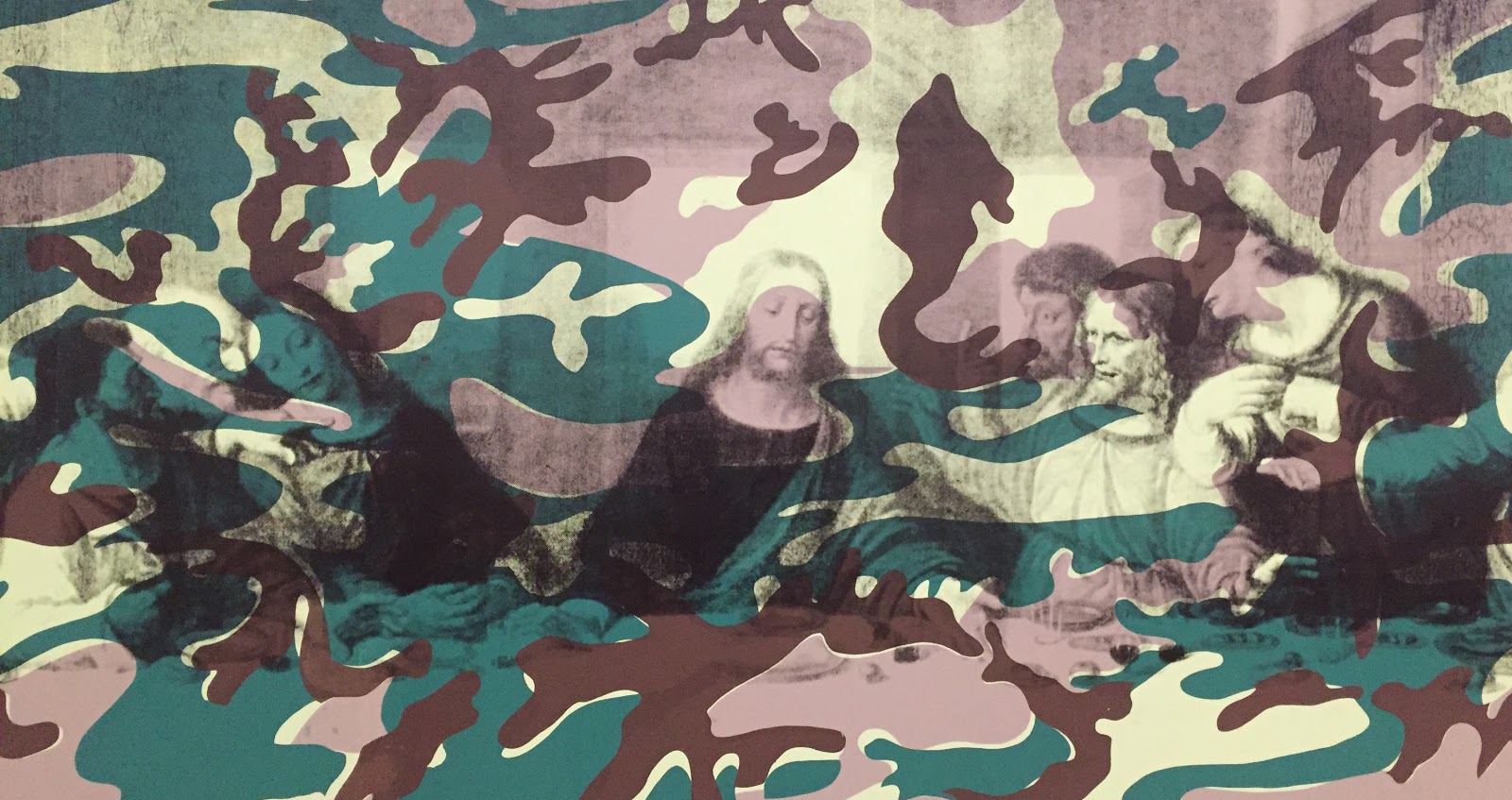
We visited both exhibitions on one sunny spring day. We started the day at the Warhol retrospective at the Whitney. The show included most of what one would expect to see in a Warhol retrospective, including the Campbell’s Soup cans, Brillo boxes, portraits of celebrities, etc. It also included his later, very large paintings, particularly his Camouflage Last Supper, which is twenty-five feet long and poignantly completed the year before his death. The show highlighted some of his very early works which were a treat to see. Particularly enjoyable to look at were early drawings of a roll of dollar bills and a Campbell Soup can inverted over a Coke bottle. The themes of commerce and popular culture would dominate his work for his entire career. We also enjoyed an early black and white photograph of a McDonald’s hamburger package alongside a hammer and sickle from a hardware store. The pairing made a clever statement on communism and capitalism. Interestingly, there was an old invoice for photography work from 1959 that Warhol was paid one hundred dollars for when Warhol apparently lived on Lexington Ave.
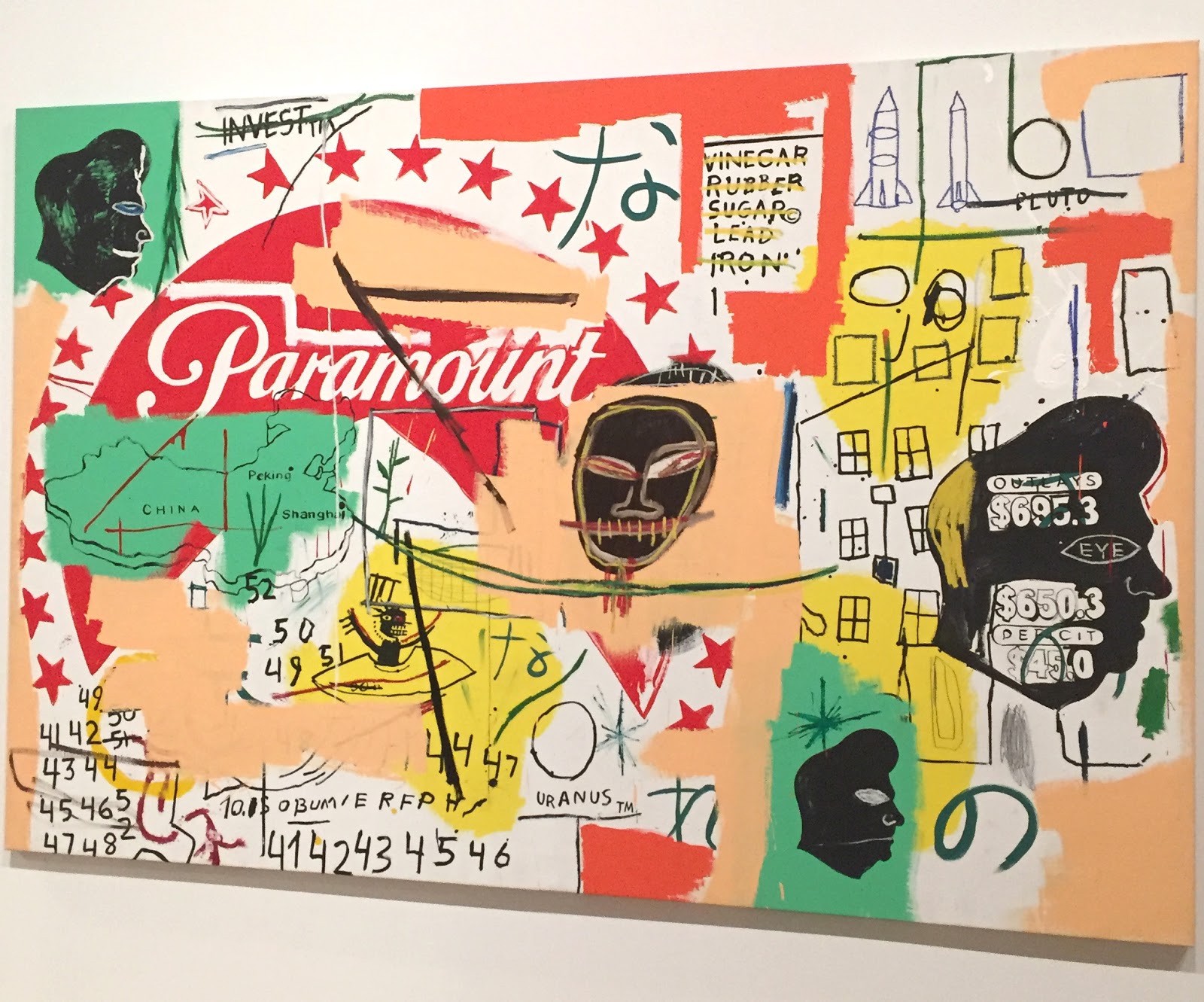
However, what we came to see were the two collaborative Warhol and Basquiat pieces Paramount and Third Eye. Basquiat explained the collaborative process this way. Warhol would “start with something very concrete, like a newspaper headline or a product logo, and then I would sort of deface it.” This process would continue for two or three rounds until the work was considered finished. Warhol once quipped Basquiat “came up and painted over a painting that I did, and I don’t know if it got better or not.” Paramount expresses each artists reflections on capitalism, celebrity, and politics.
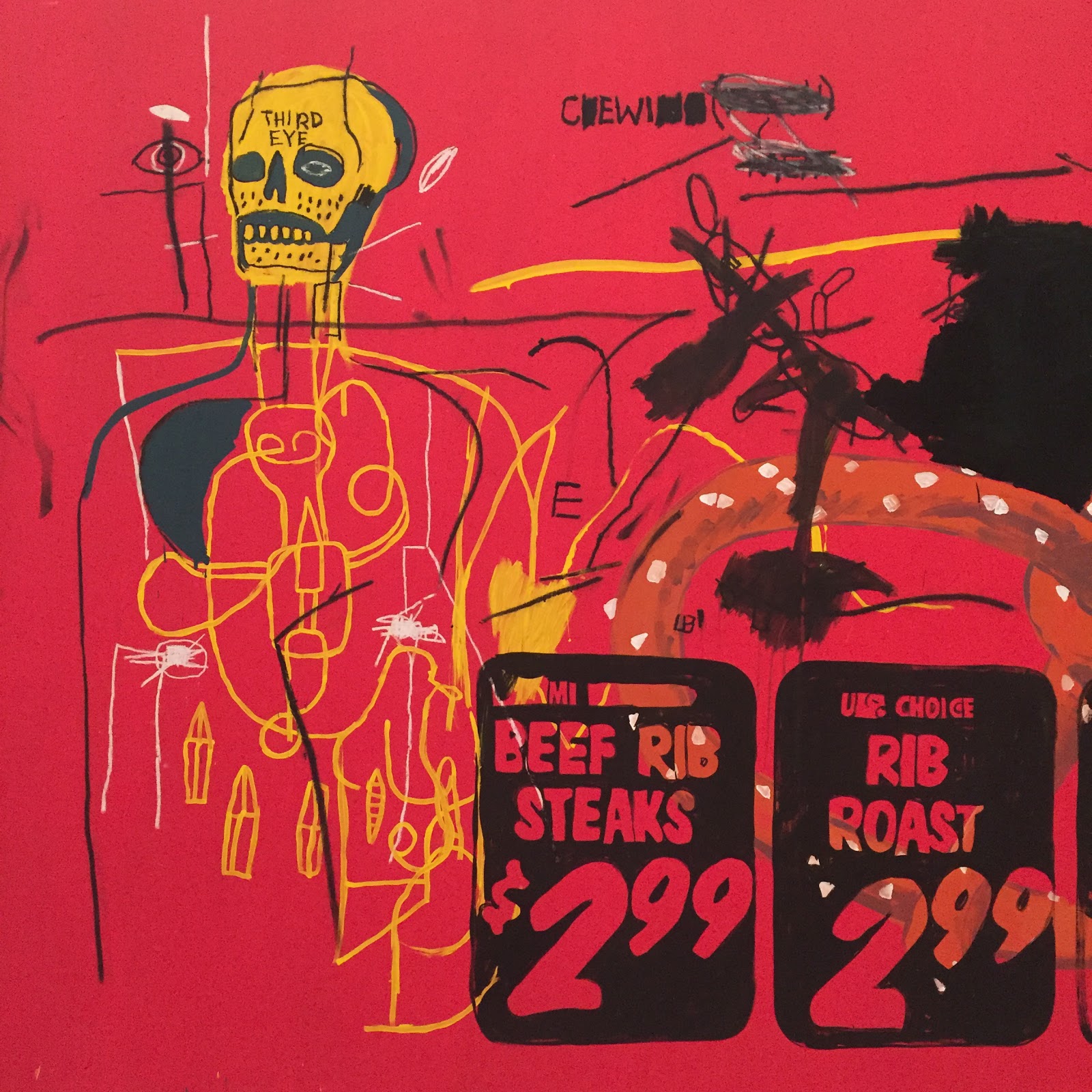
After viewing the Warhol retrospective, we crossed town to the East Village. The Brant Foundation Study Center is located in an old Con Edison building on East 6th St. It is the former studio of Minimalist artist Walter De Maria. , who is best known for his Lightning Field installation in New Mexico and his New York Earth Room, a 3,600 sq. ft. room in a building on Wooster St. that is filled with 22 inches of dirt. It has been located there since 1980. The Brant Foundation’s renovation of De Maria’s old studio building is in keeping with the flavor of its previous incarnations. When entering the building, we were directed to a large elevator that took us to the top floor. When you step out of the elevator, the first thing one notices is a skylight with water running over it. The rippling water causes the light to shimmer throughout the room. Walls facing north on two floors have been removed and replaced with floor to ceiling glass windows, giving a view northward. The Chrysler building can be seen in the distance.
As we entered the exhibition, it was explained that the show is not arranged chronologically but thematically, which was evident in some rooms, but not in others. There are small rooms filled with drawings and rooms filled with his larger paintings. When one gets to the bottom floor and experiences what has become known as “the wall.” It is a three-story interior wall filled top to bottom with sixteen large Basquiat canvases. One of them is the double portrait of Basquiat and Warhol that Basquiat painted after meeting Warhol for the first time. The exhibition includes epic works such as his large Boy and Dog in a Johnnypump and the 110 million dollar “Untitled” skull painting.
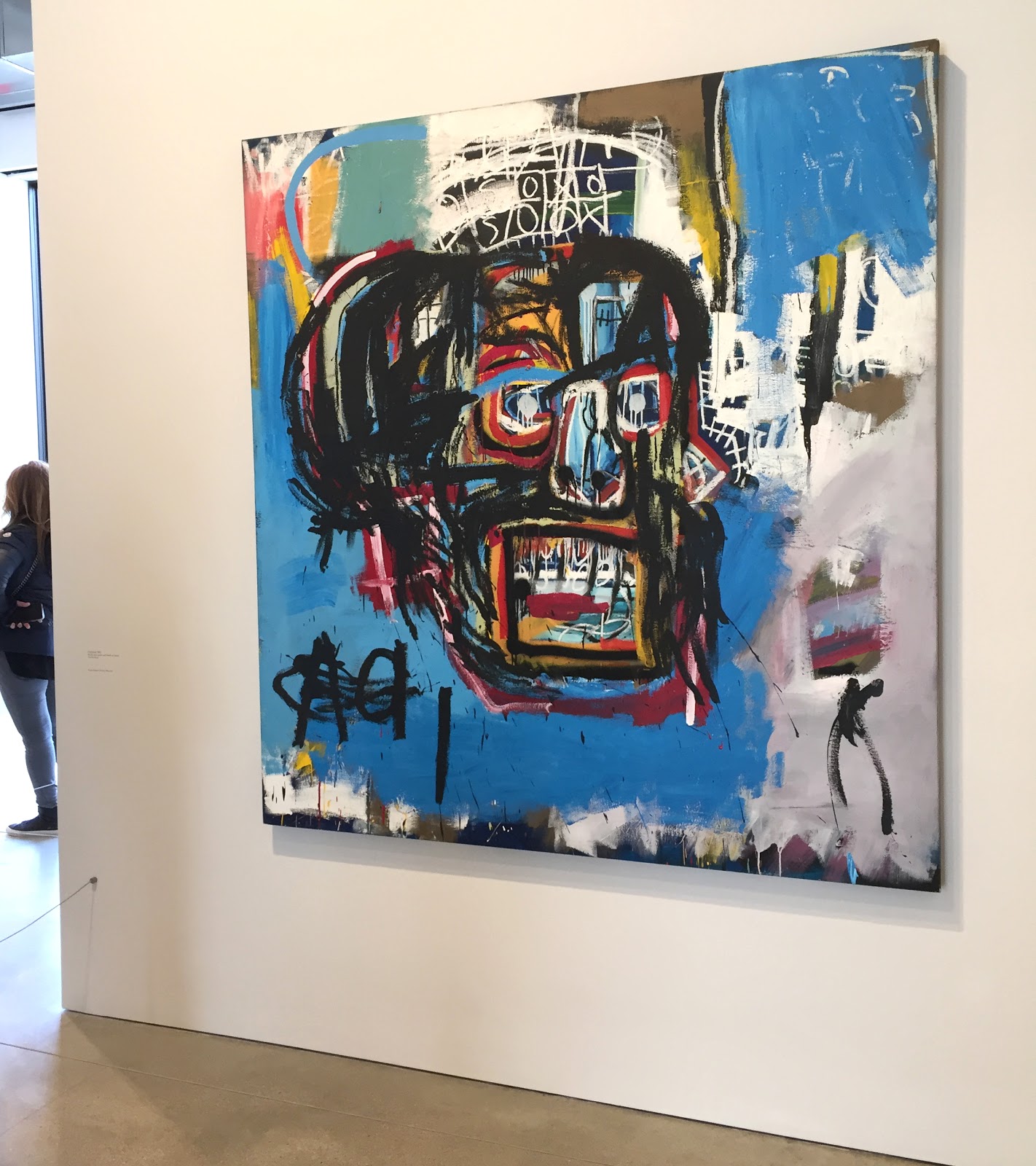
The show also includes smaller, important works such as his painting Cassius Clay, a tribute to Mohammed Ali. It is a simple white drawing on a red roughly stretched canvas recalling pads lining a gym wall. Nearby is St. Joe Louis Surrounded by Snakes an image of Joe Louis the famous African-American boxer. He is painted sitting in the corner of a boxing ring surrounded by wide-eyed and screaming men. It reminded us of the medieval painting attributed to Hieronymous Bosch Christ Carrying a Cross, in which Christ is surrounded by grotesque figures. We wondered if Basquiat identified with Joe Louis and experienced opportunistic and callous hangers-on surrounding himself. The artwork in the exhibition is powerful, and the presentation is thoughtful. We think it is the best pairing of architectural setting and artwork since Heavenly Bodies at the Met Cloisters.

The Warhol retrospective closed March 31st, but the Basquiat exhibition continues through May 15th. The tickets are sold out, but you can put your name on the waiting list and hope that a ticket becomes available.
The Brant Foundation Art Study Center is located at 421 East 6th Street.
top image // Basquiat Dos Cabezas 1982, all photos Michael Wolf

